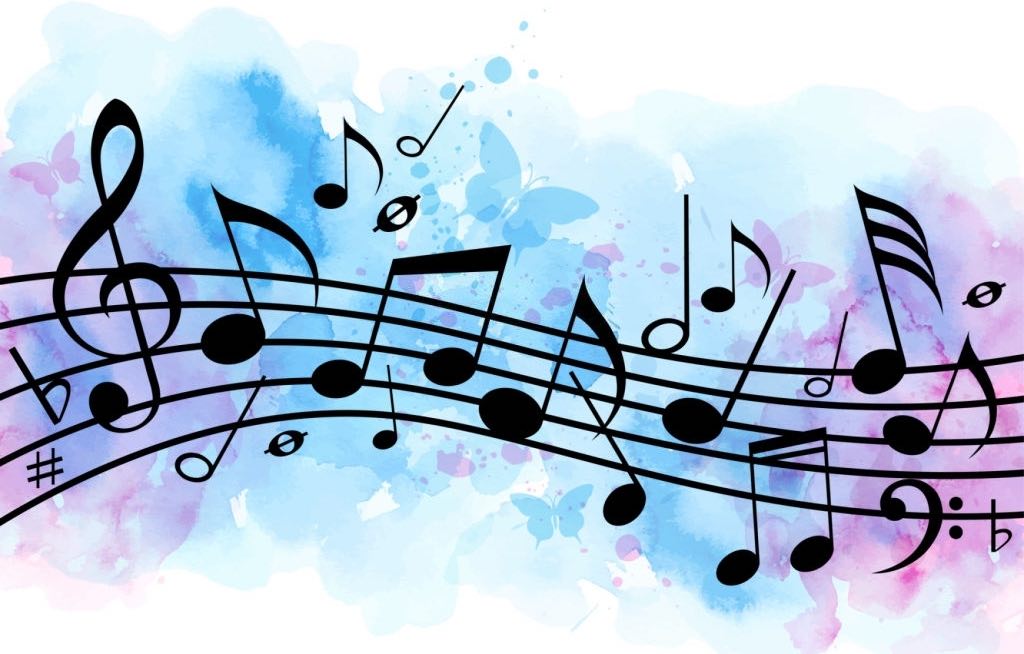The Influence of Songs on Feelings and Mental Well-being
In the world of psychology and wellness, the extensive influence of songs on feelings and mental wellness has long been a subject of passion and research. From affecting state of mind to serving as an effective device for stress and anxiety monitoring, songs's function in shaping psychological wellness is deserving and diverse of further exploration.
Effect of Music on Mood

Research has shown that music can regulate state of mind by turning on neural paths associated with emotions in the brain. Listening to music can stimulate the release of neurotransmitters like dopamine and serotonin, which are understood to manage state of mind and feelings. This physiological reaction to music describes why particular tracks can quickly uplift our spirits or bring splits to our eyes. Recognizing just how songs affects mood can have significant ramifications for using songs as a healing device for psychological law and psychological health.
Link Between Music and Stress
The interaction between musical stimulations and the human action to anxiety has been a topic of expanding rate of interest in the fields of psychology and neuroscience (MUSIC). Songs has actually shown remarkable capacity in mitigating tension degrees and advertising relaxation. Studies have actually suggested that listening to songs can result in physical modifications in the body, such as decreased heart price, lower blood pressure, and lowered levels of cortisol - a hormonal agent connected with tension
The link in between music and anxiety relief is assumed to be carefully connected to the effect of songs on the limbic system, which plays an essential role in emotions and stress actions. Certain kinds of music, such as ambient or classical songs, have been found to be especially reliable in inducing a sense of calmness and relaxation. In addition, personal songs preferences can likewise influence the stress-reducing results of music, highlighting the significance of personalized strategies when utilizing songs as an anxiety management tool. Additional research in this field holds pledge for the development of music-based treatments to assist people deal with stress better.
Songs as a Restorative Device
:max_bytes(150000):strip_icc()/pop-music-57bce3863df78c87634ea806.jpg)
Study has shown that music treatment can substantially minimize stress and anxiety, more helpful hints depression, and persistent pain. It has been specifically valuable for people with mental health and wellness conditions, developmental handicaps, and those going through medical therapies. Music has the capacity to evoke memories, boost favorable emotions, and give a sense of convenience and leisure. In addition, songs therapy can boost cognitive function, electric motor skills, and social communications.
Impact of Songs on Mental Wellness

Acknowledged for its efficiency in minimizing a range of mental problems, music's effect on psychological health is a subject of growing passion and study. Music has actually been located to have profound impacts on psychological wellness by influencing mood, minimizing stress, and improving general health. Study suggests that paying attention to songs can stimulate the release of neurotransmitters like dopamine and serotonin, which are connected with satisfaction and state of mind regulation. This can result in minimized signs and symptoms of anxiety and depression. Additionally, music treatment, an organized use of music to improve mental health results, has been shown to be helpful for people with numerous psychological visit site wellness problems, consisting of trauma (PTSD), schizophrenia, and dementia - MUSIC. Additionally, songs can serve as a type of self-expression and emotional release, offering individuals with a healthy electrical outlet for their sensations. Overall, the impact of songs on psychological health and wellness is an appealing area of study that supplies possible restorative benefits for people encountering different mental health obstacles.
Ways to Incorporate Music for Health
A reliable method to improve wellness with music is by incorporating personalized playlists customized to private preferences and moods. Songs has the power to evoke emotions and affect our psychological state, making it a useful tool for advertising wellness. One method to incorporate songs for wellness is by creating playlists that reverberate with certain emotions or objectives. Developing a playlist of positive songs for an early morning boost or loosening up melodies for stress alleviation can be advantageous.
An additional method to make use of music for well-being is with energetic listening. Taking the time to truly involve with the songs, concentrating on the verses, instruments, and general make-up, can deepen the psychological link and enhance the healing effects. This conscious approach to listening can assist people process emotions, lower anxiety, and enhance total psychological health.
Furthermore, participating in live music events or performances can also add to wellness by giving a feeling of happiness, link, and area. Being component of a shared musical experience can uplift spirits, foster a sense of belonging, and produce enduring memories that favorably influence psychological wellness.
Final Thought
To conclude, songs has a significant effect on emotions and mental well-being. It can influence mood, reduce stress, and work as a therapeutic device for boosting psychological wellness. Including songs into everyday routines can improve overall well-being and add to a positive frame of mind. It is necessary to recognize the power of music in advertising psychological equilibrium and psychological clearness.
The relationship in between music and mood is detailed, with numerous aspects of music such as pitch, tempo, and mode playing key duties in generating emotional feedbacks. Recognizing exactly how songs affects mood can have substantial ramifications for using songs as a therapeutic device for emotional law and psychological well-being.
The link between songs and tension alleviation is believed to be very closely linked here to the influence of music on the limbic system, which plays a vital function in feelings and anxiety responses. Furthermore, individual music choices can also affect the stress-reducing results of music, highlighting the relevance of personalized strategies when utilizing songs as a stress administration device. Furthermore, songs therapy, a structured use of songs to boost mental health and wellness end results, has been shown to be beneficial for individuals with numerous mental health and wellness problems, consisting of post-traumatic tension condition (PTSD), schizophrenia, and mental deterioration.